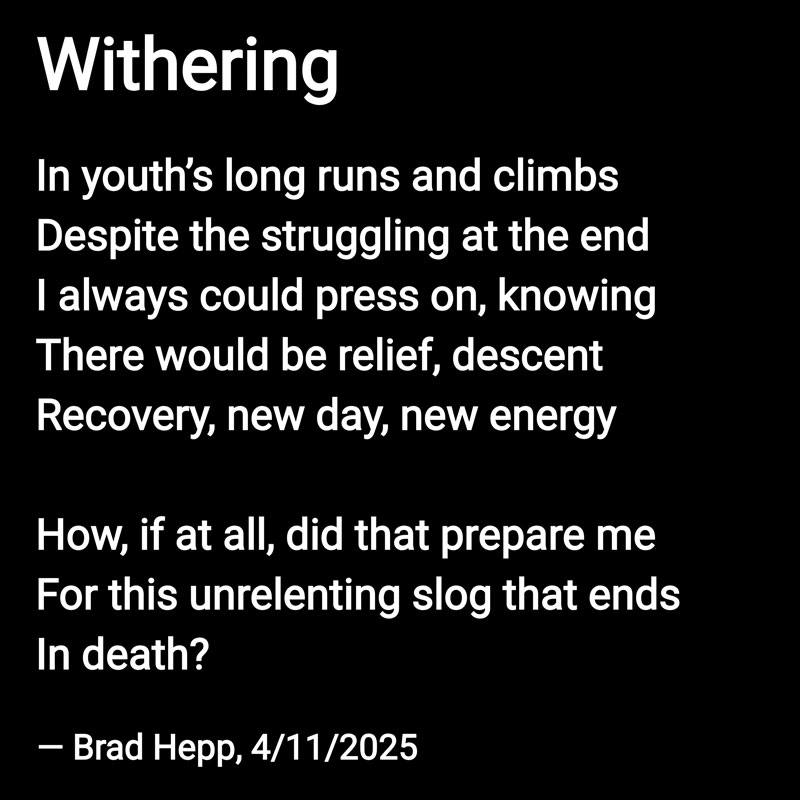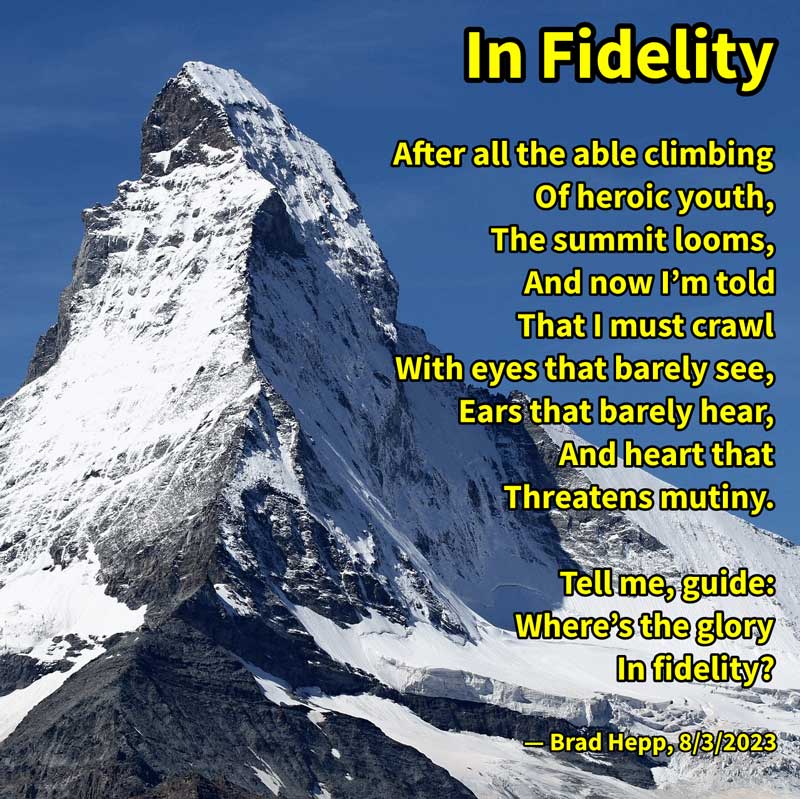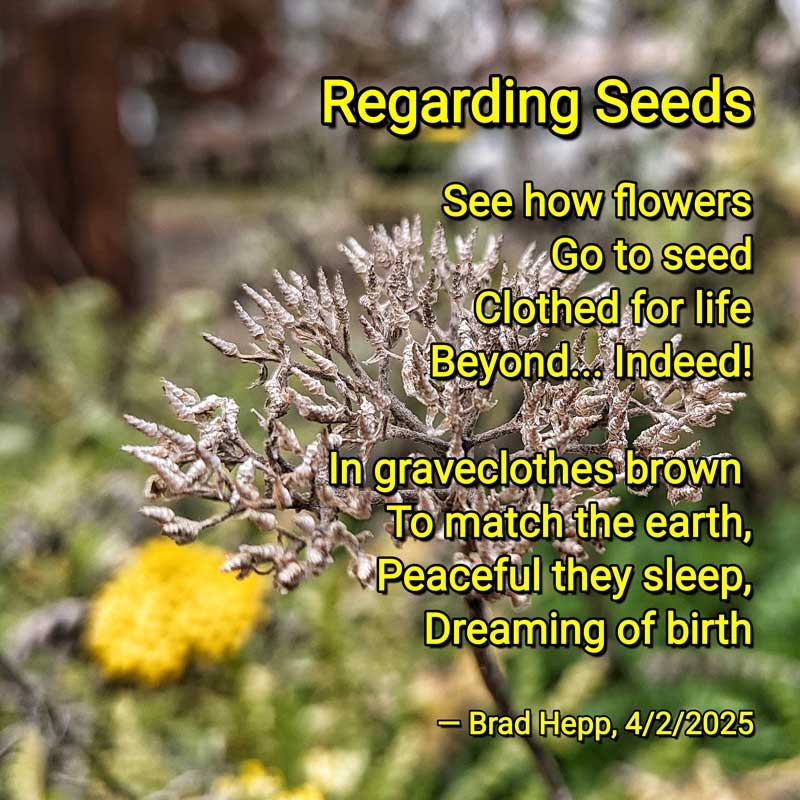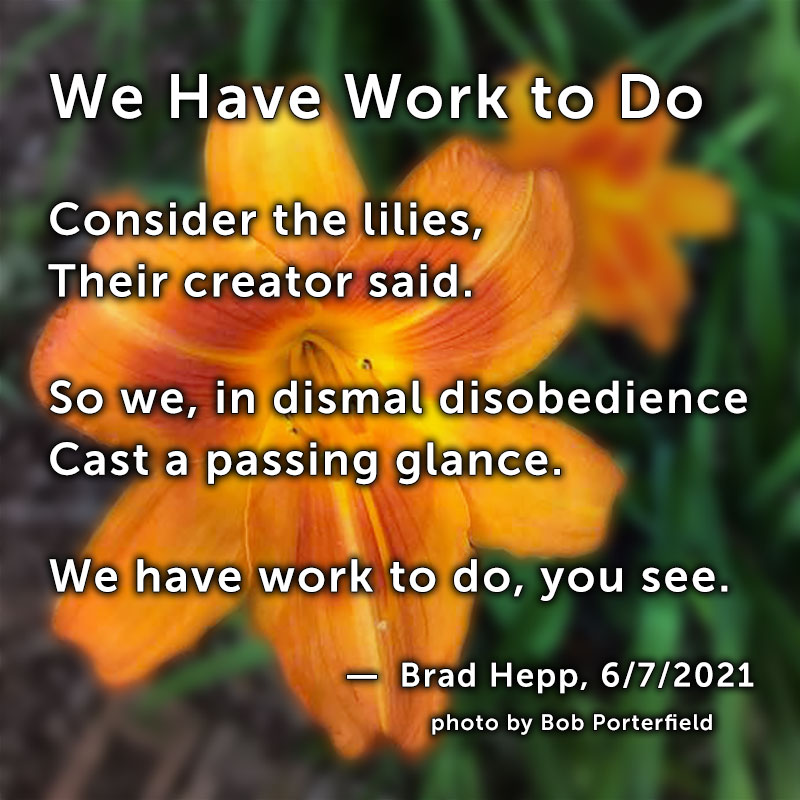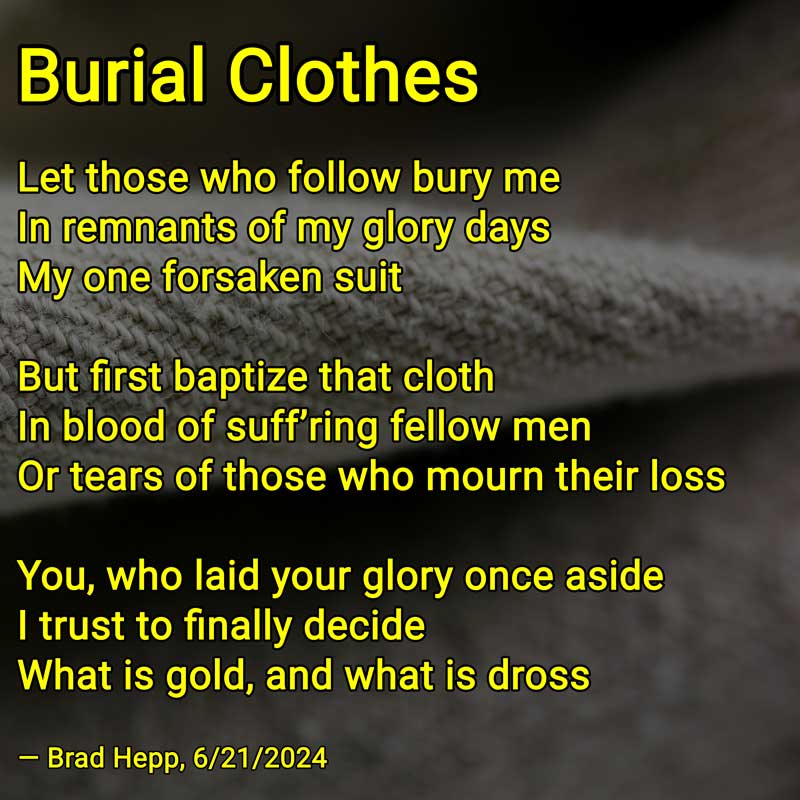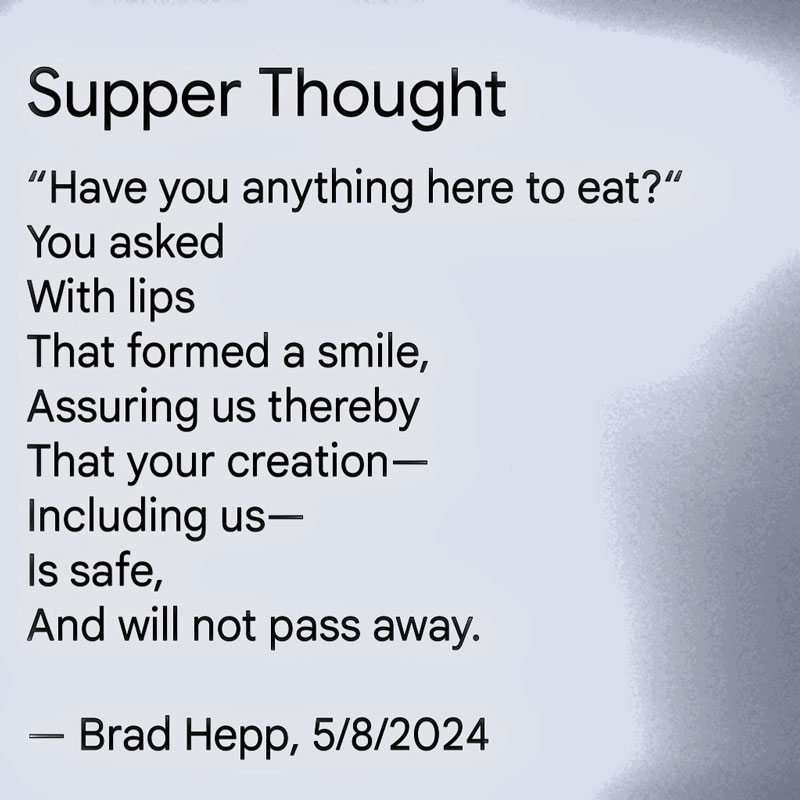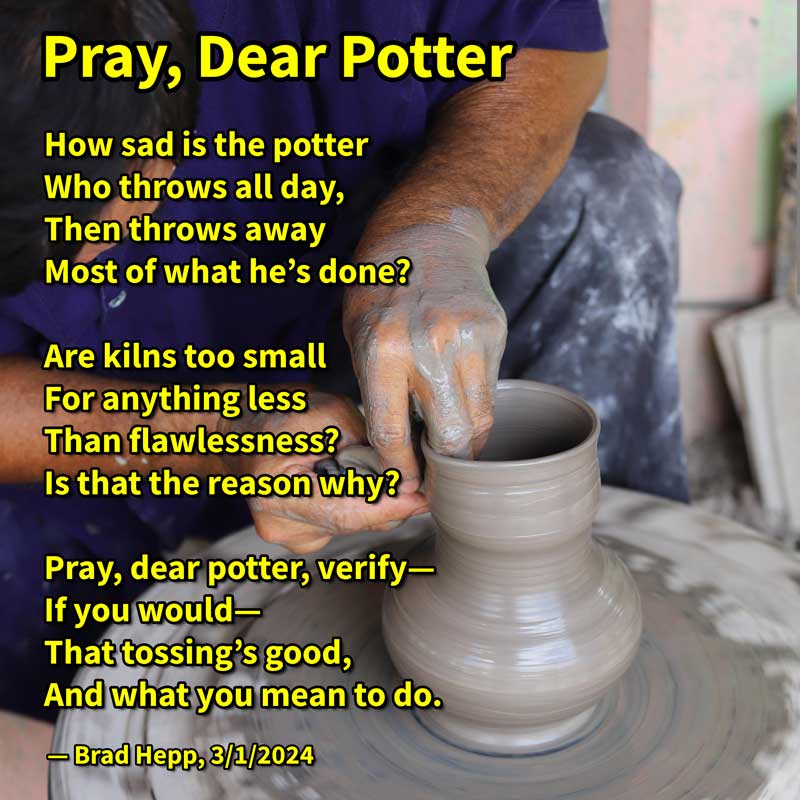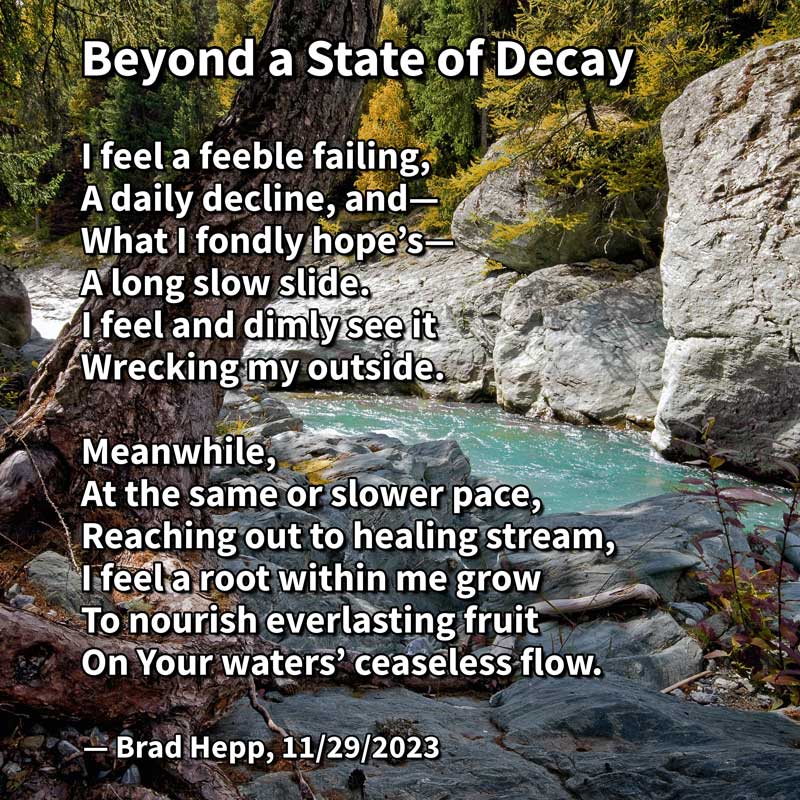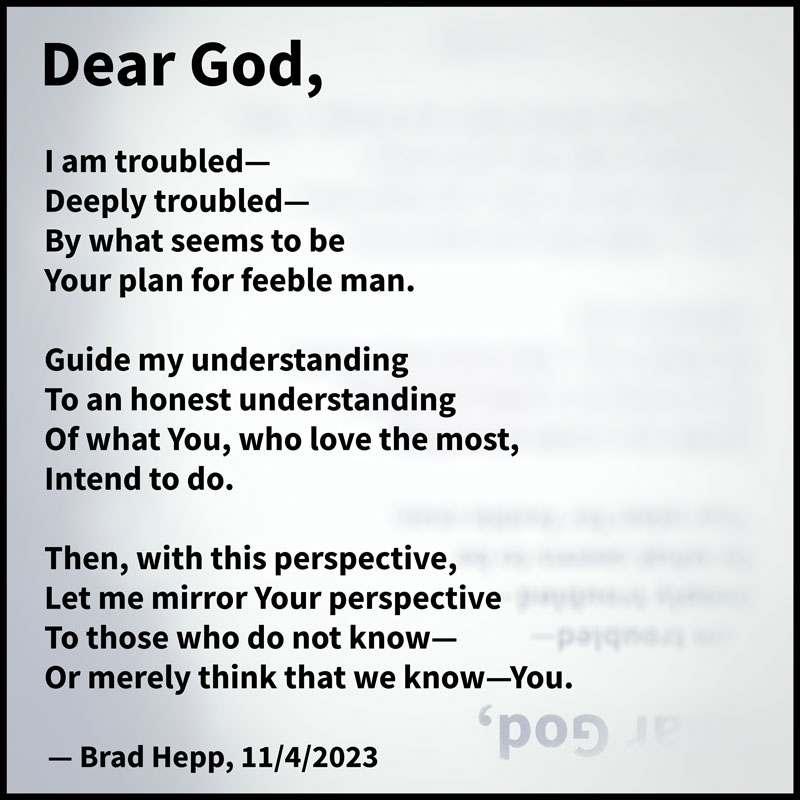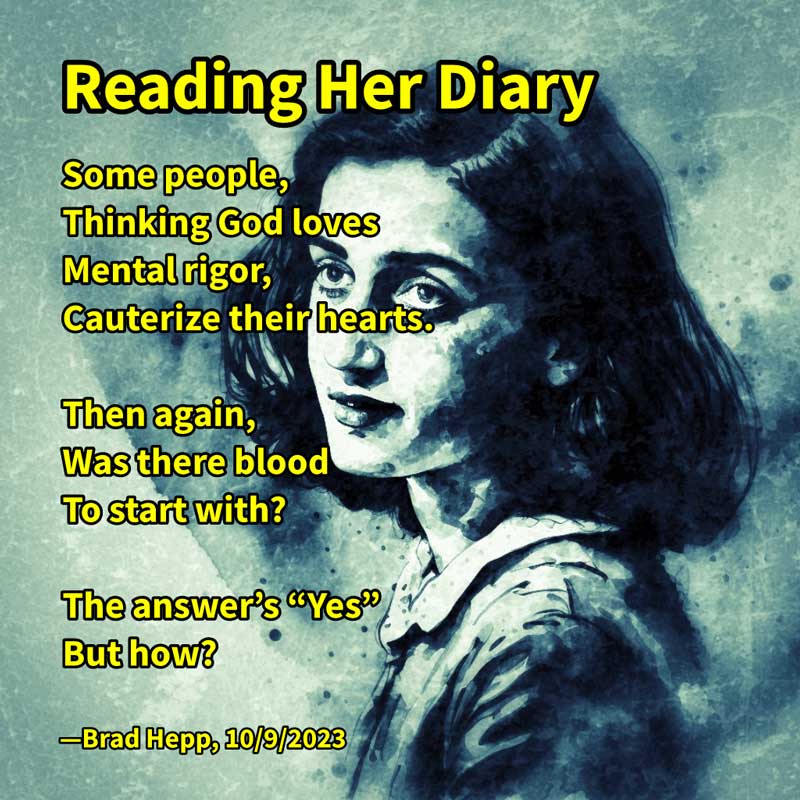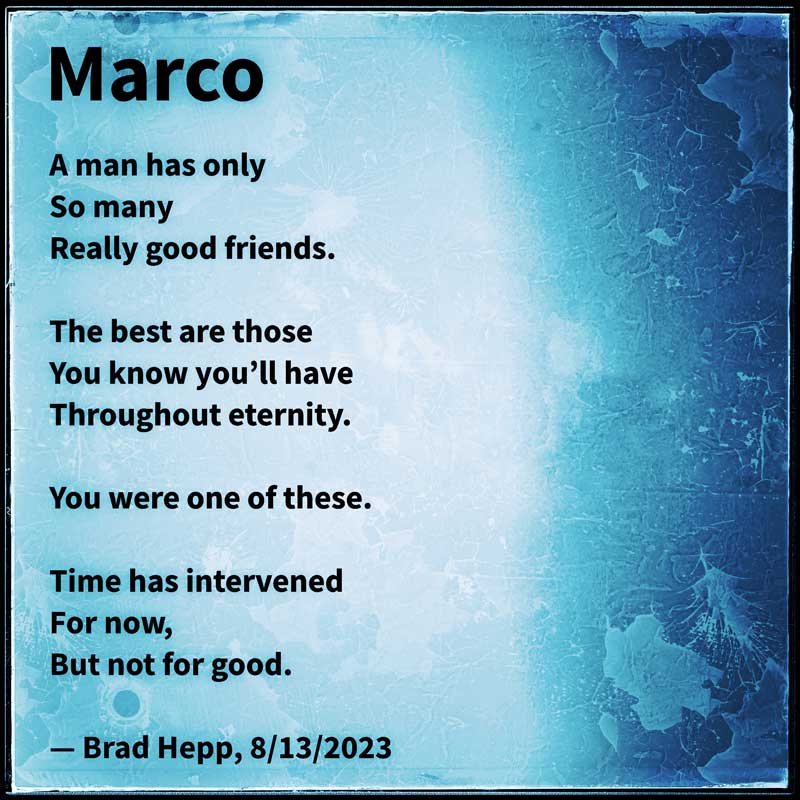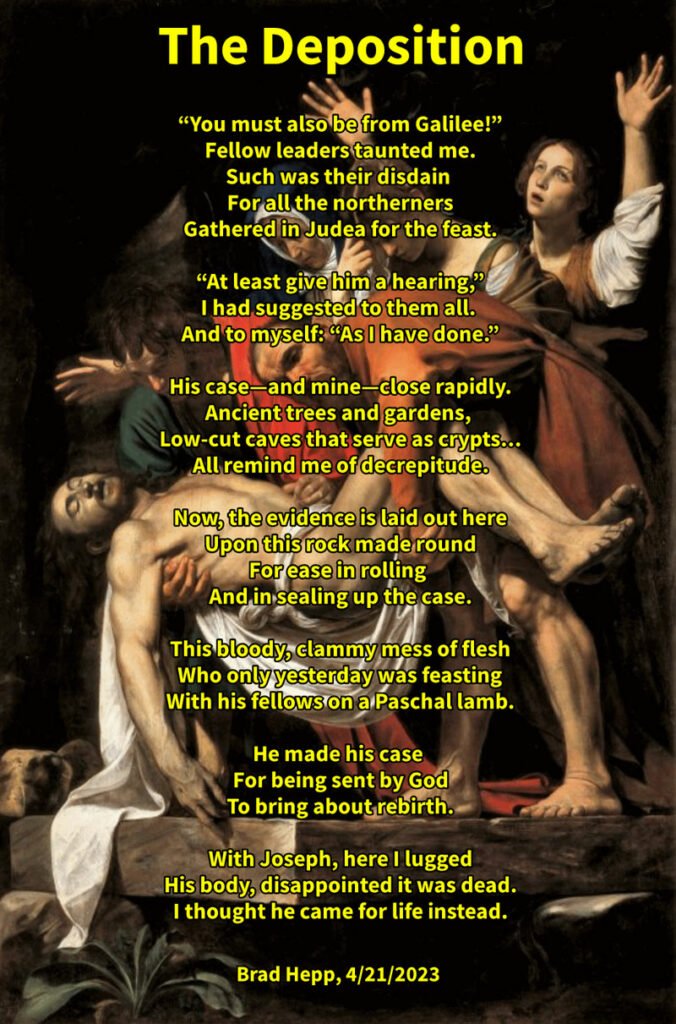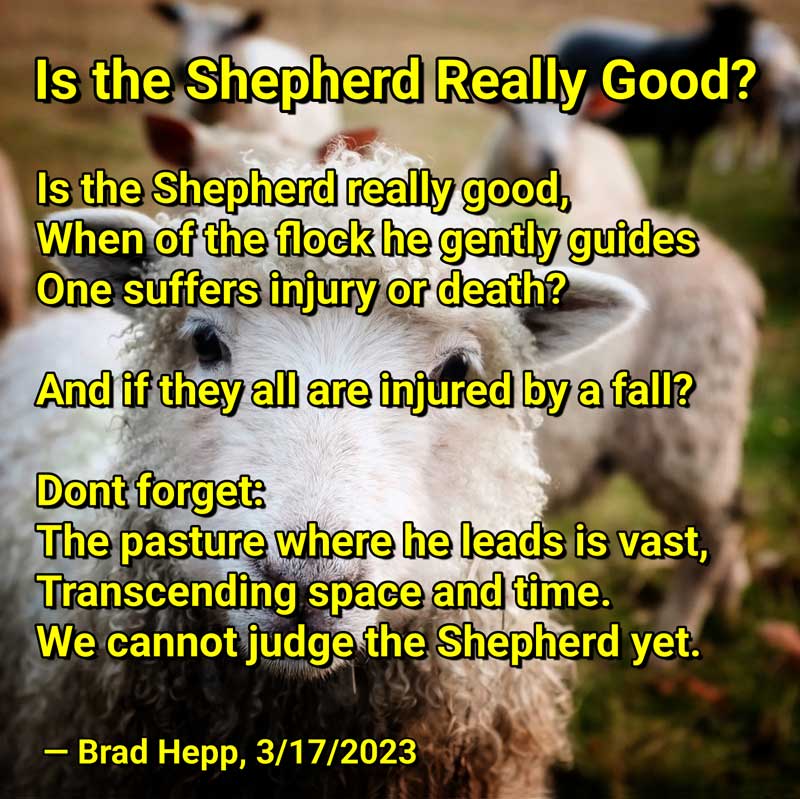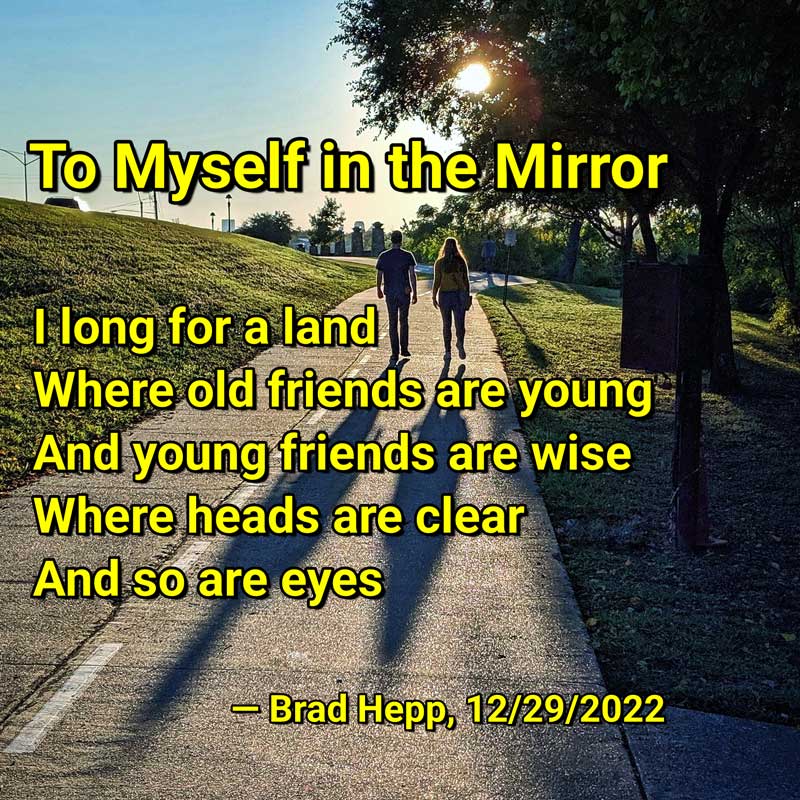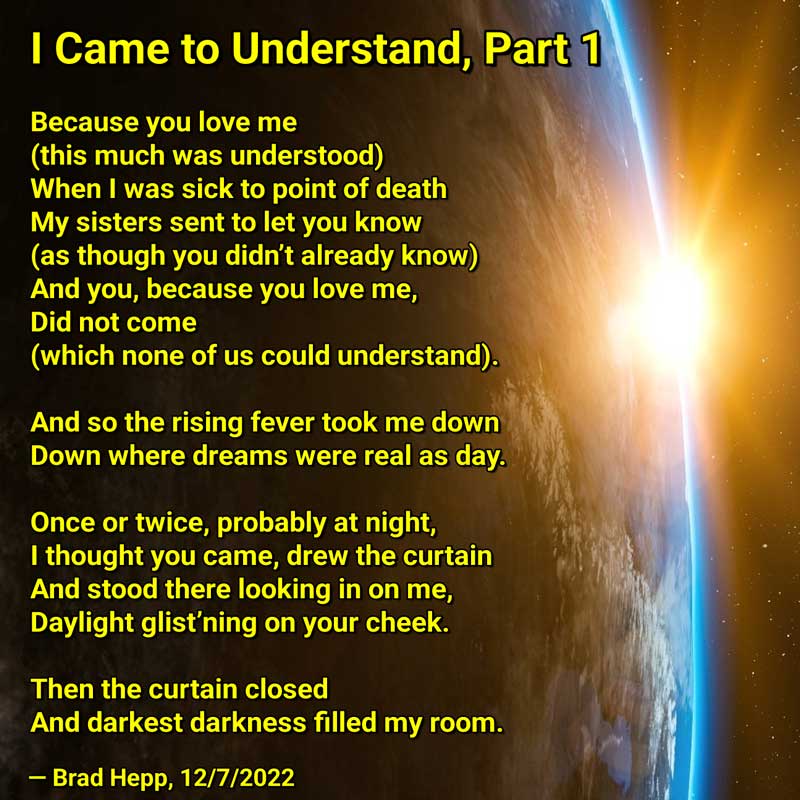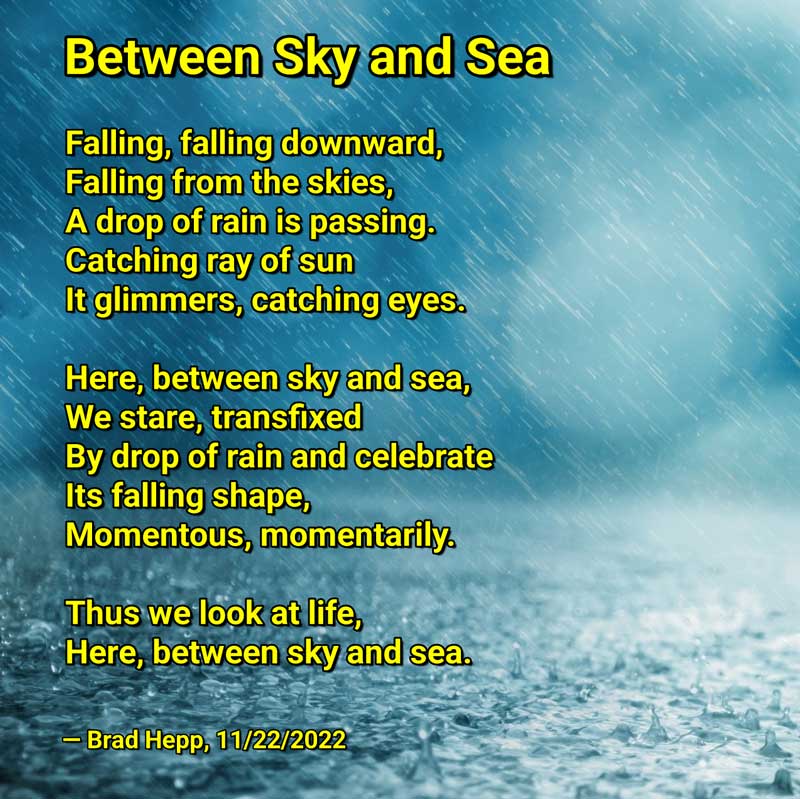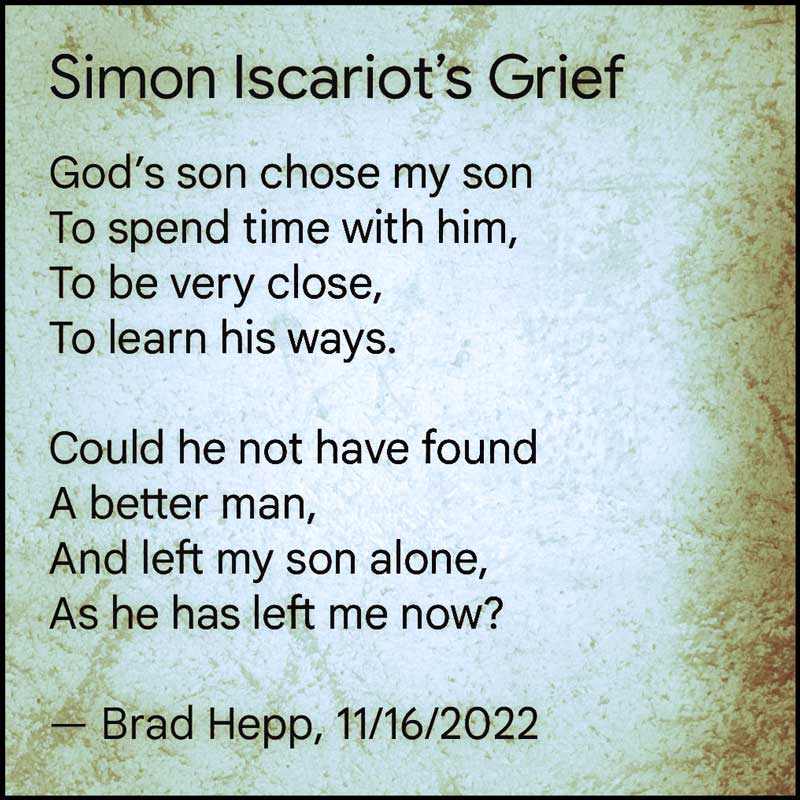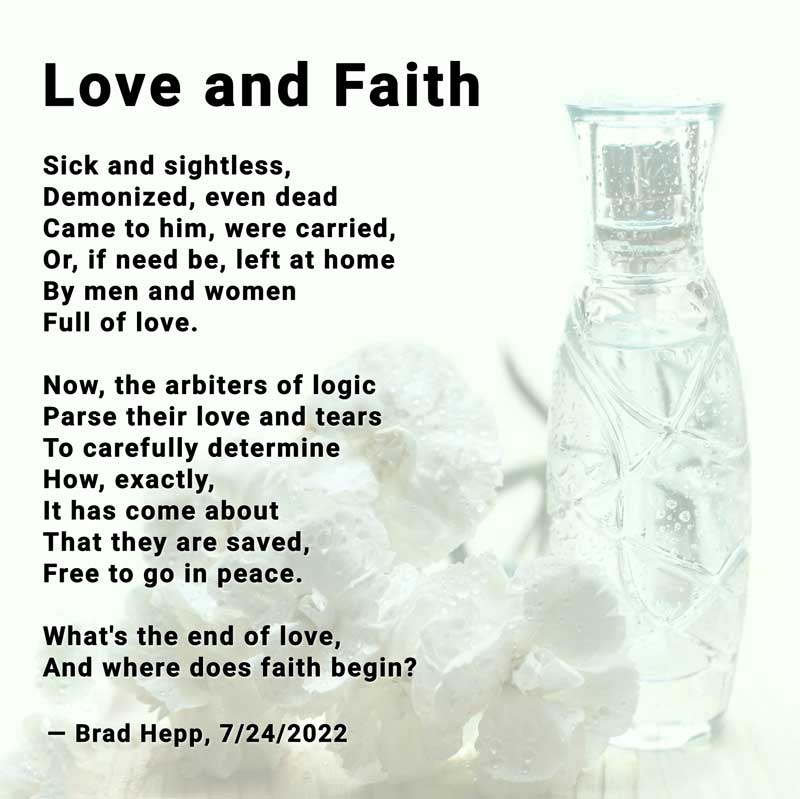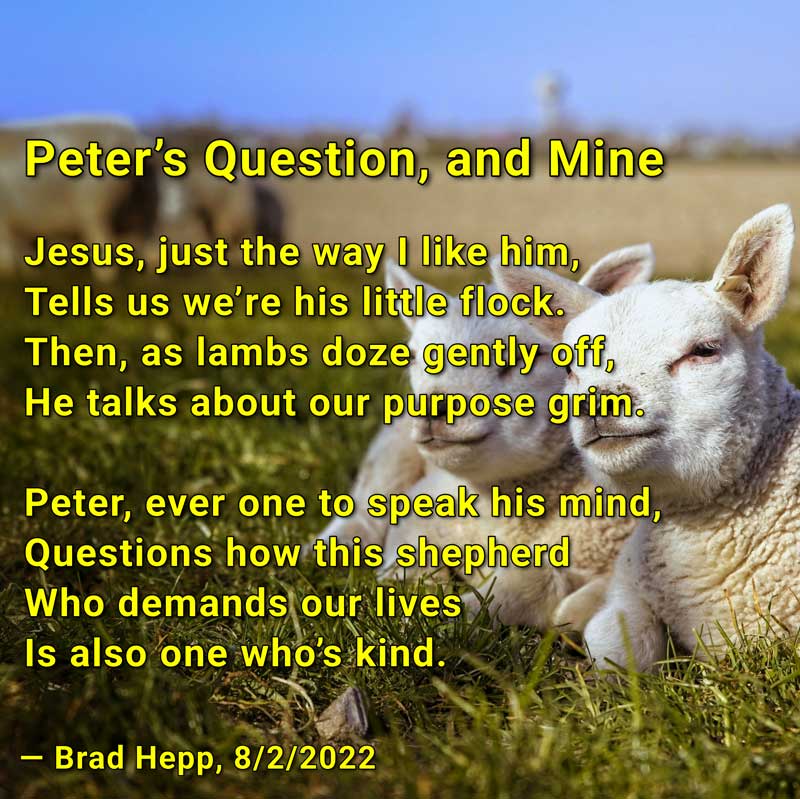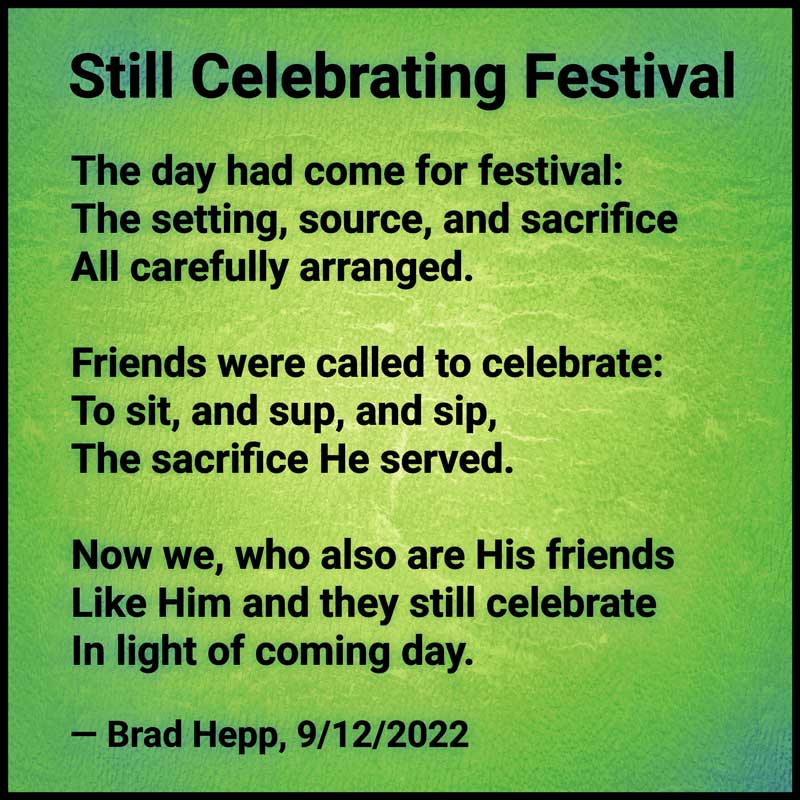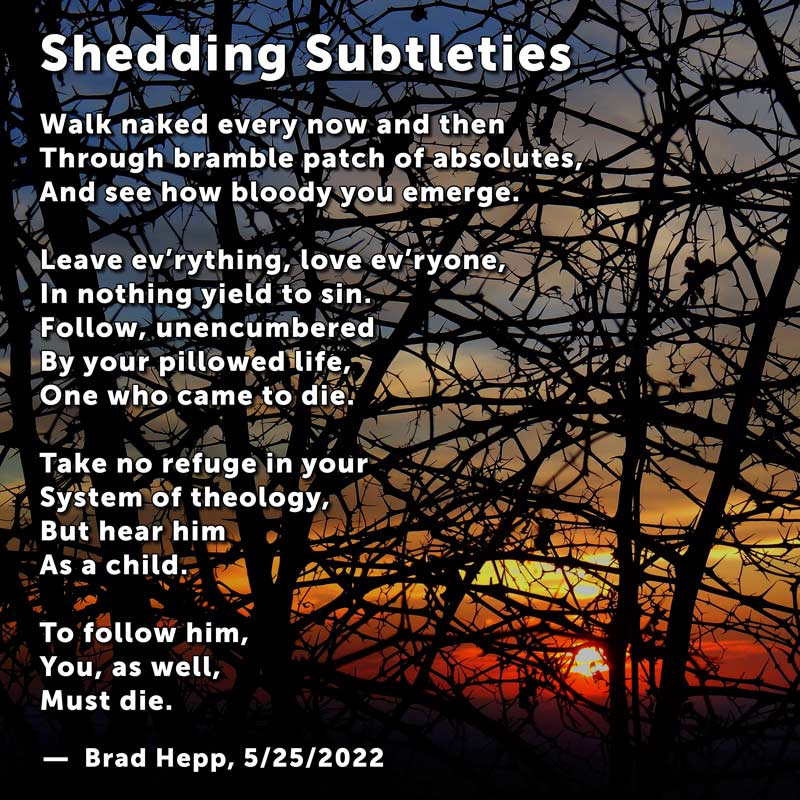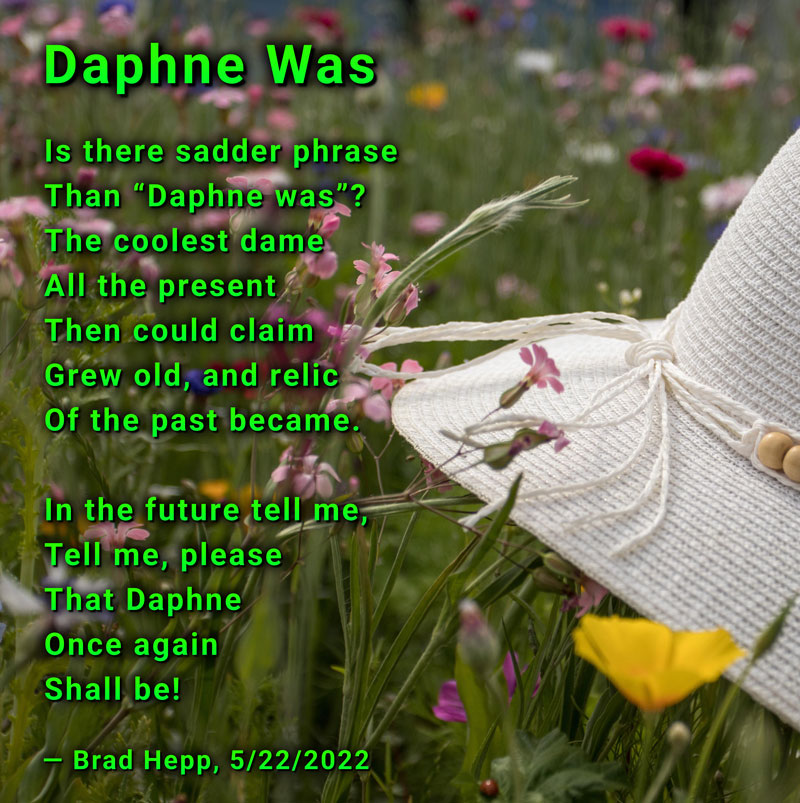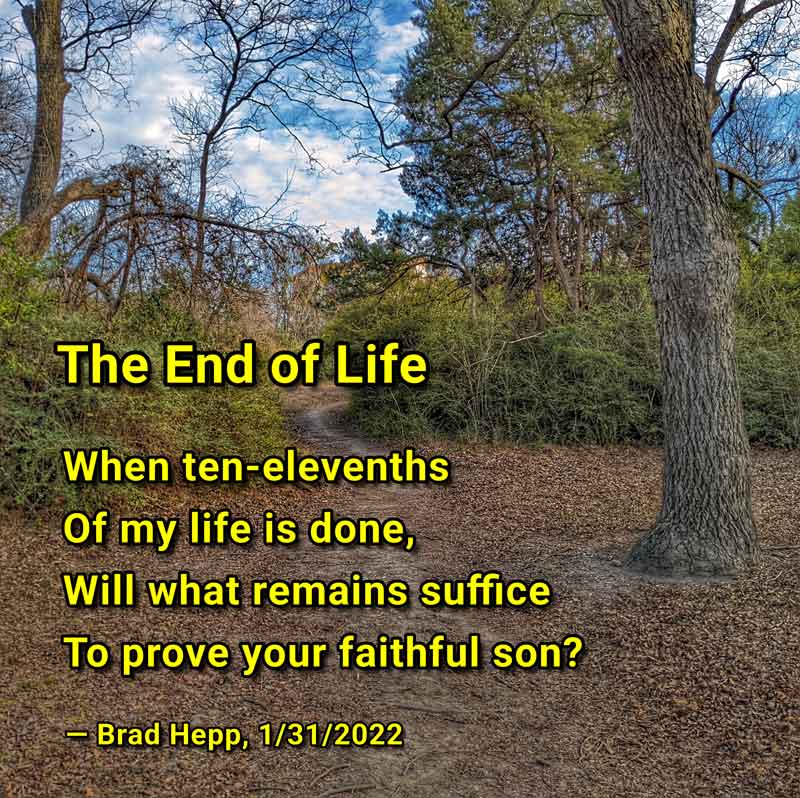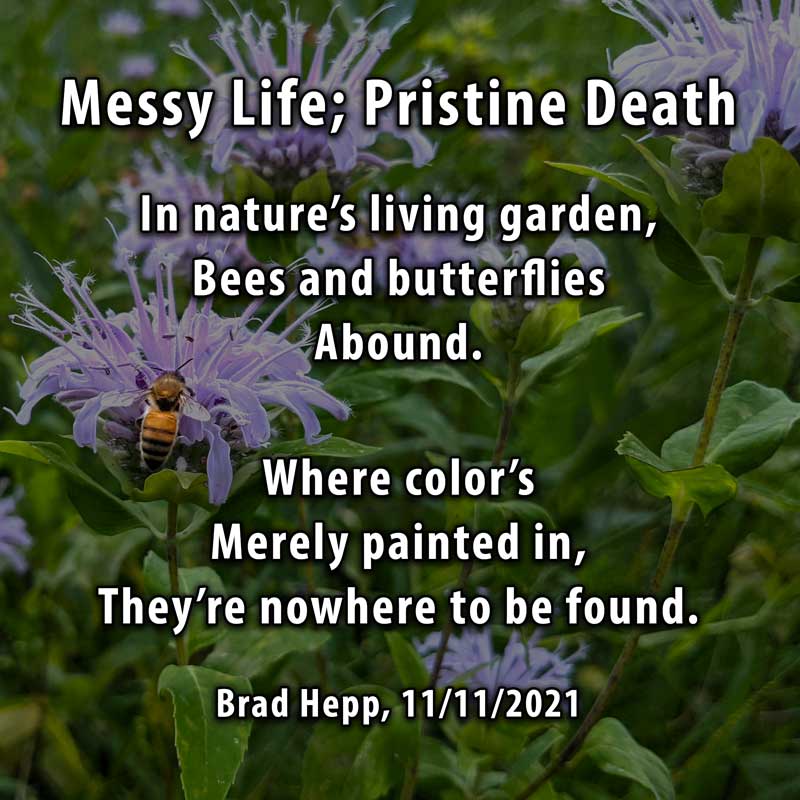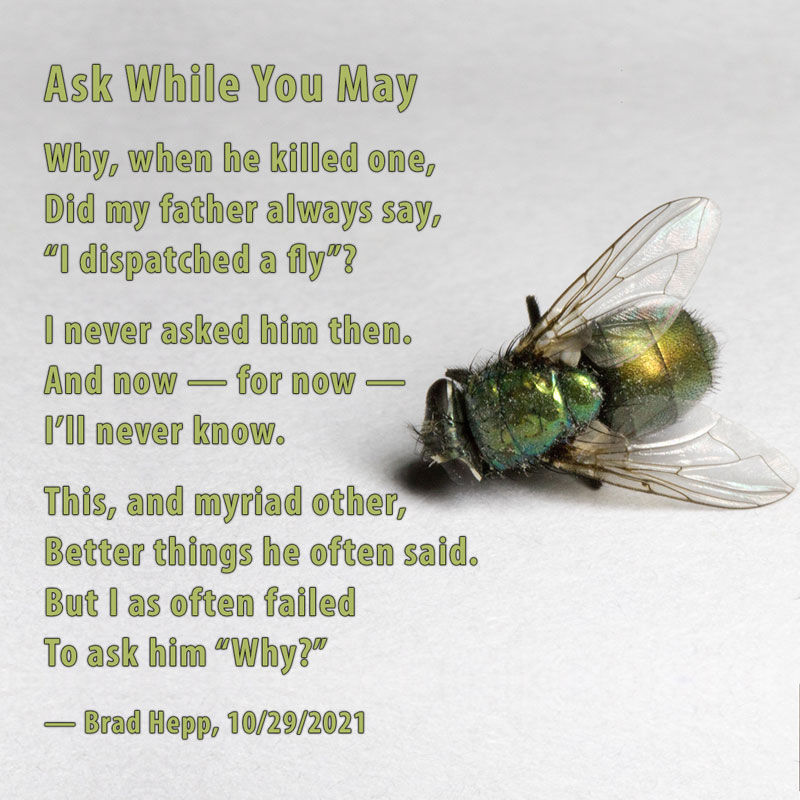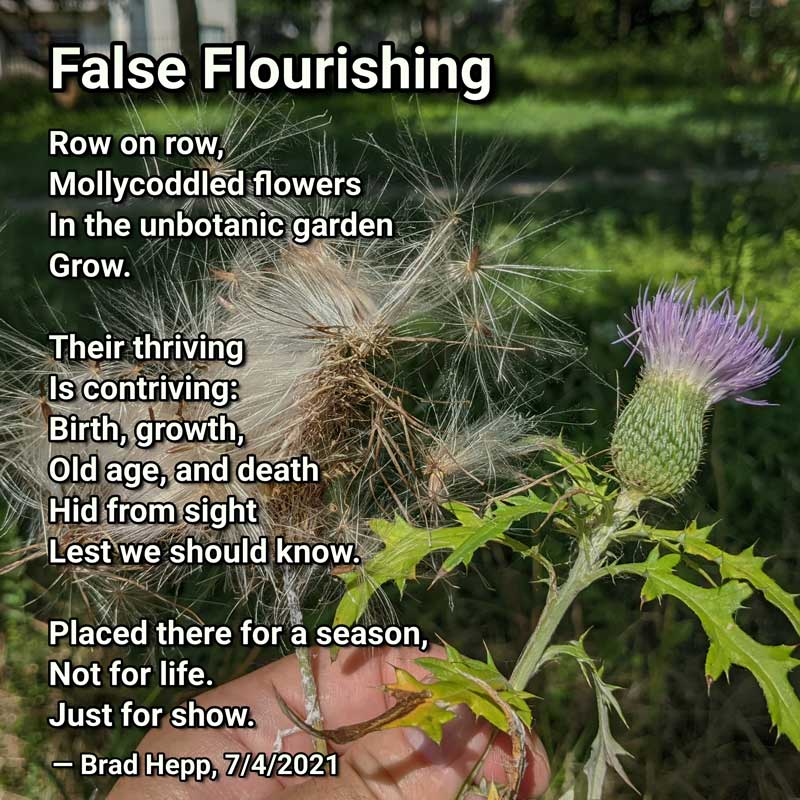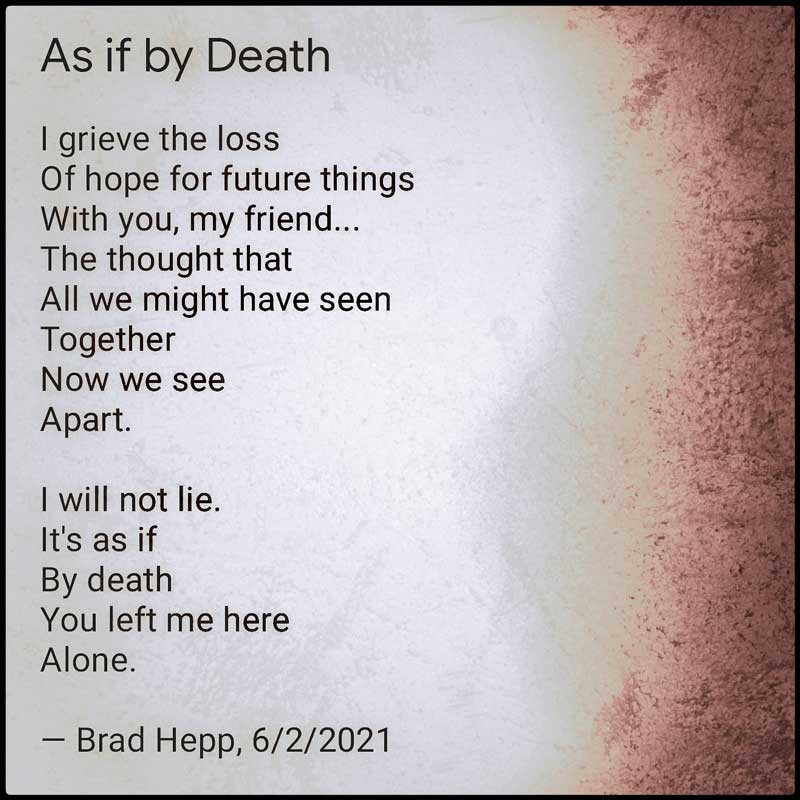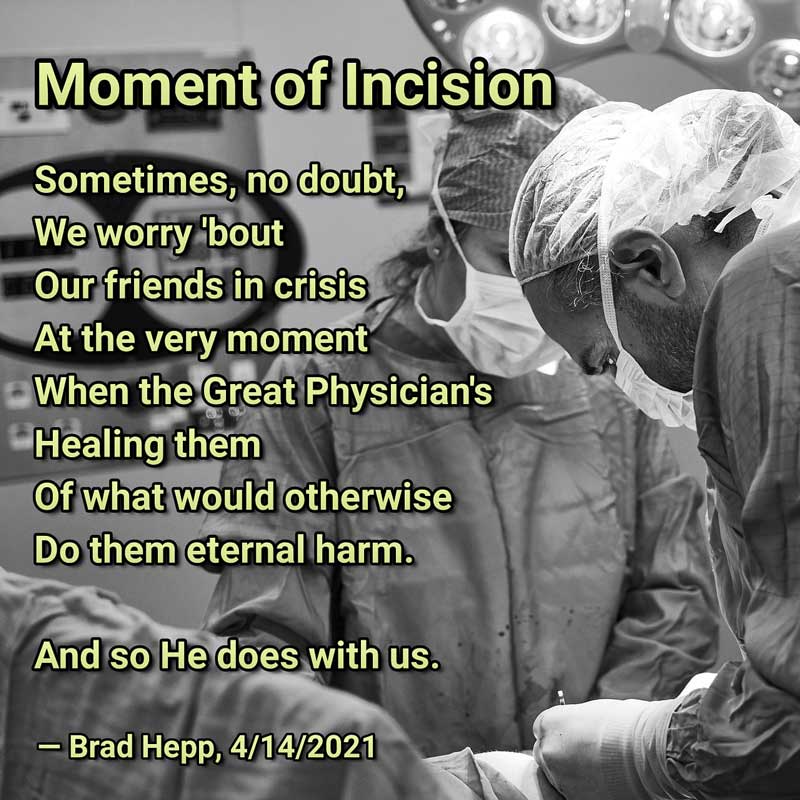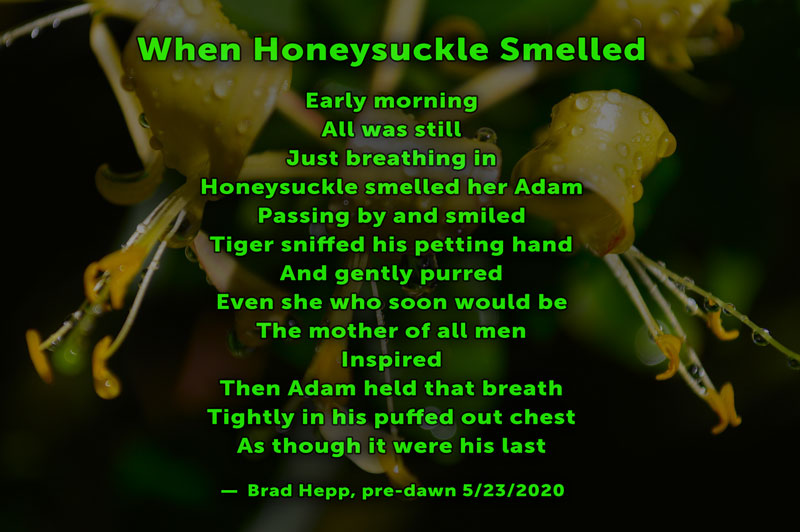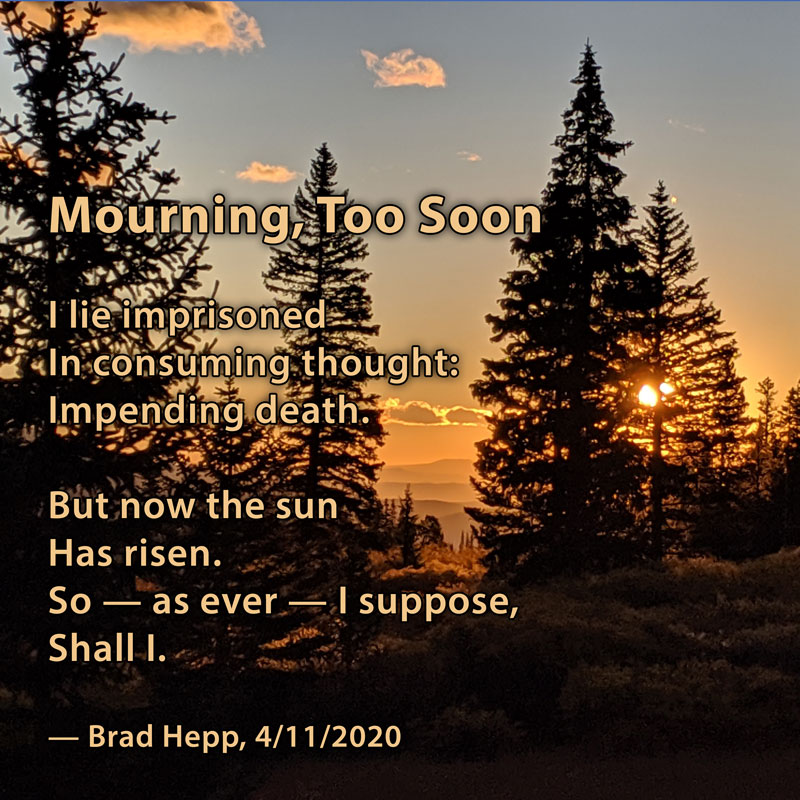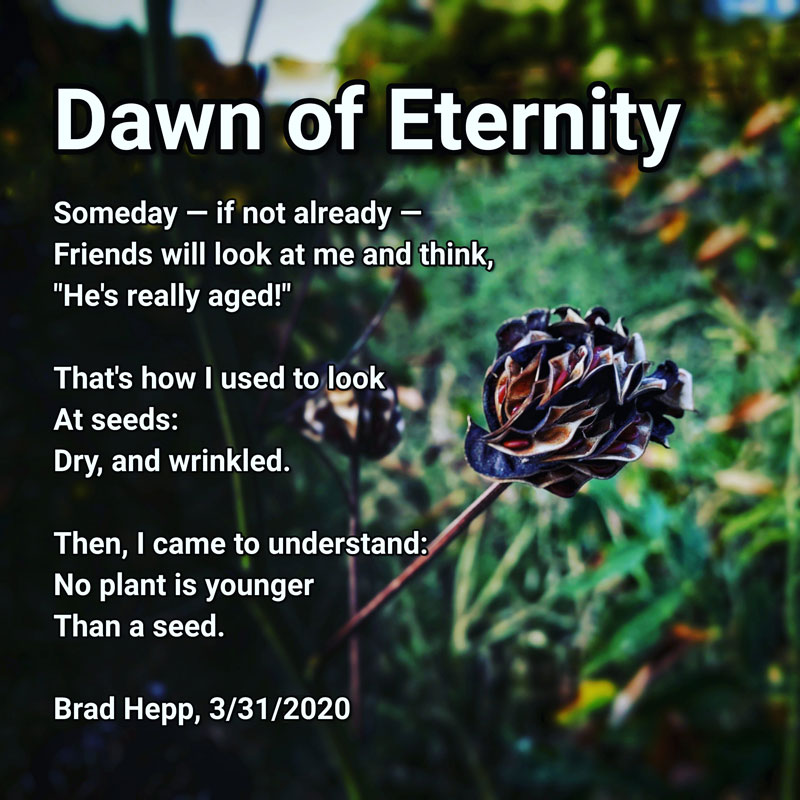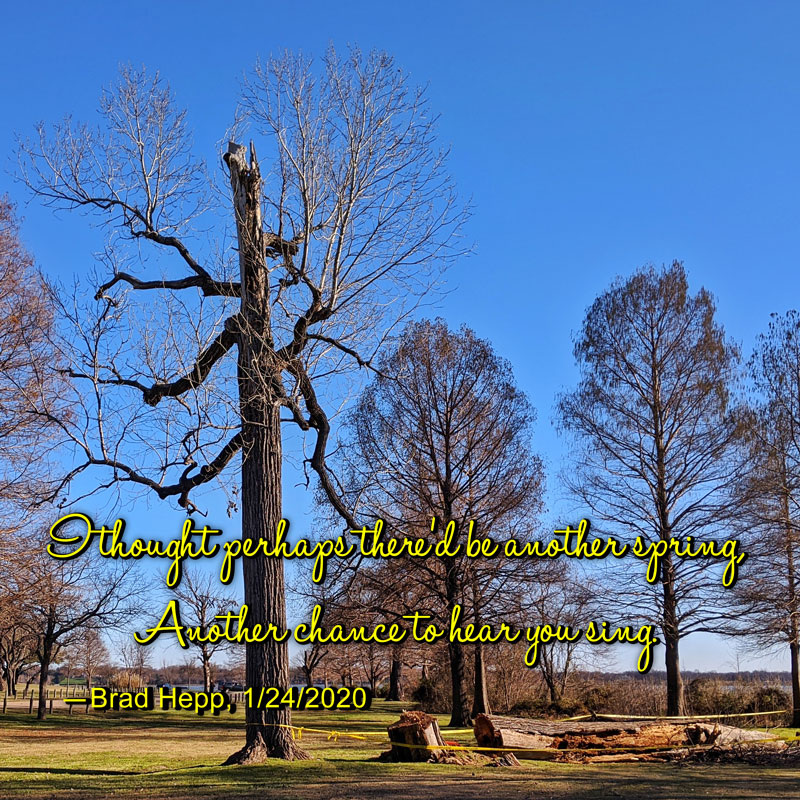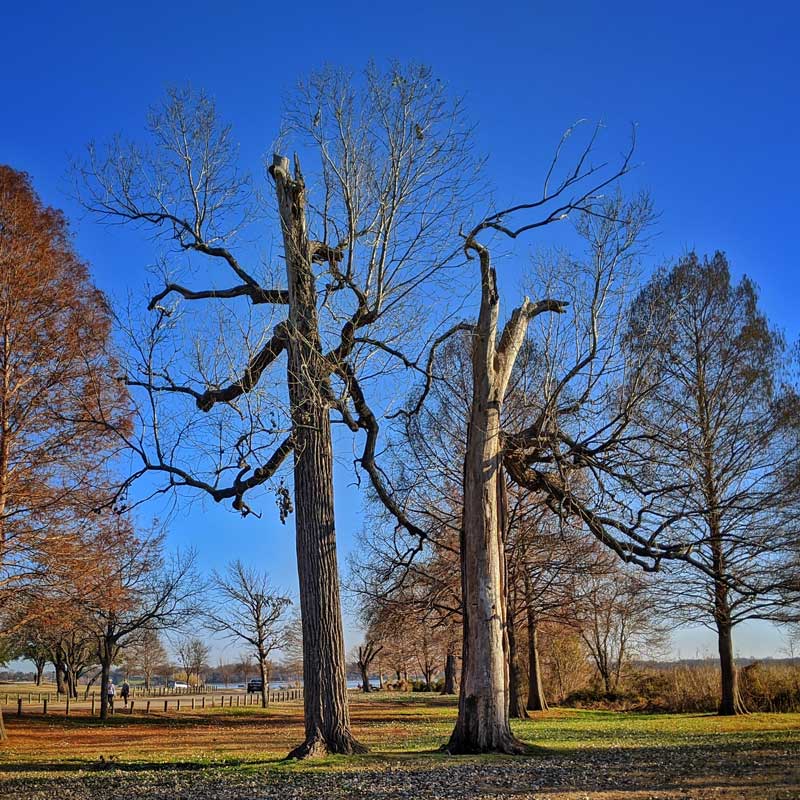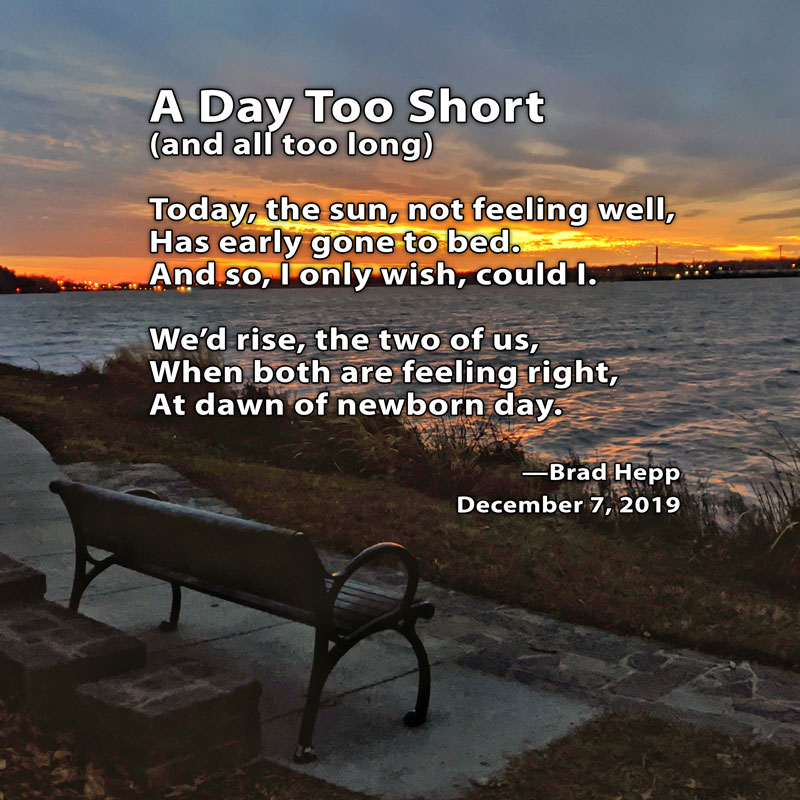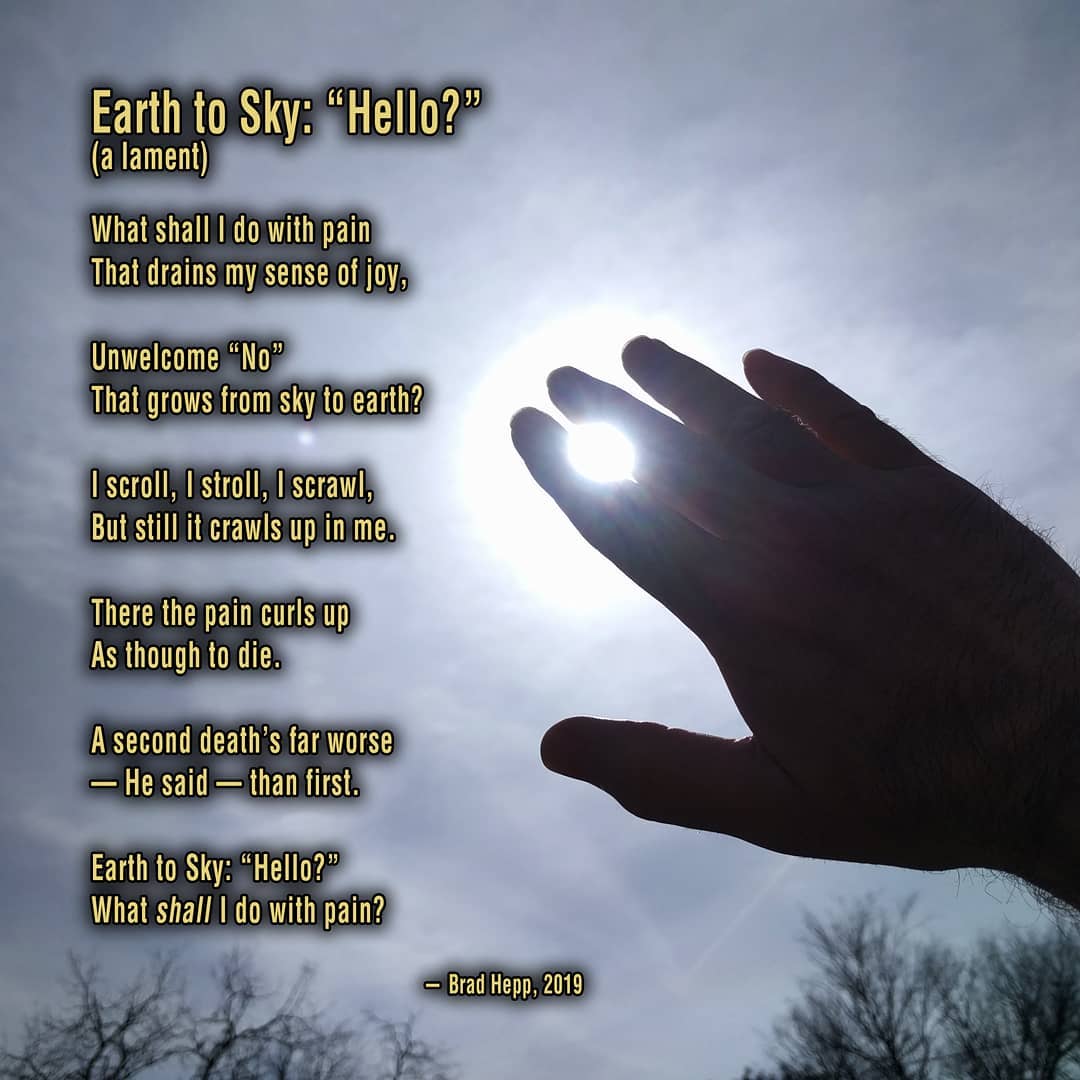(if you are viewing this via email, the website has a recording of this poem and commentary; click the title above)
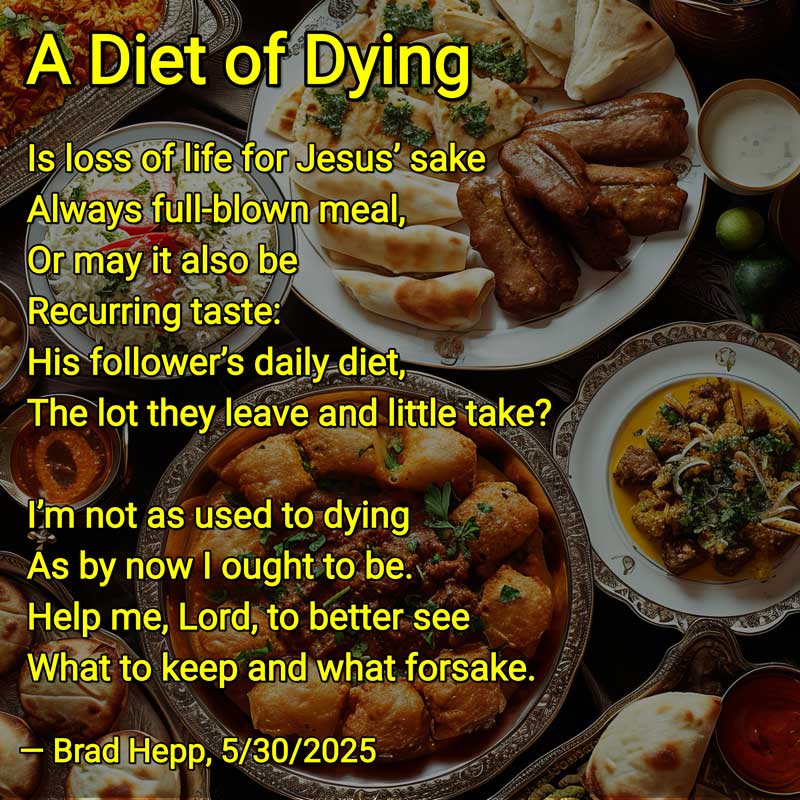
Commentary
This poem is the confluence of three streams:
First, I woke up one morning about a week ago and–seemingly out of nowhere–a phrase popped into my mind: “I’m not accustomed to dying.” This kind of early-morning inspiration accounts for a good number of my poems. Don’t ask me to identify this muse.
Second, sometime in the following days, my daily reading of George Herbert got me to his poem “Mortification.” In the last two lines of that poem, Herbert wrote
Yet Lord, instruct us so to die,
That all these dyings may be life in death.
Third, I reviewed Jesus’ words to his disciples just before the Transfiguration. Notice that he first speaks of taking up a cross and losing life. Then, as he predicts the Transfiguration, he speaks of tasting death. Are all three expressions equivalent? Do they all refer to bodily death? That’s a question I ask in the poem. Here’s the passage:
[23] And he said to all, “If anyone would come after me, let him deny himself and take up his cross daily and follow me. [24] For whoever would save his life will lose it, but whoever loses his life for my sake will save it. [25] For what does it profit a man if he gains the whole world and loses or forfeits himself? [26] For whoever is ashamed of me and of my words, of him will the Son of Man be ashamed when he comes in his glory and the glory of the Father and of the holy angels. [27] But I tell you truly, there are some standing here who will not taste death until they see the kingdom of God.”
Luke 9:23-27 ESV
As you can see from the poem, I tentatively conclude that there is a kind of dying that is short of bodily death. You may recall the Apostle Paul saying that he dies daily:
[31] I protest, brothers, by my pride in you, which I have in Christ Jesus our Lord, I die every day!
1 Corinthians 15:31 ESV
There is a kind of dying that is imposed on us by age. Our strength dies. Sometimes our lust and ambitions die. As I pass through my sixties (65 on Friday), I’m certainly experiencing this kind of dying. I’m slowly getting used to it, but maybe if I had exercised more self-denial and discipline over the years, I wouldn’t find myself waking up to the thought, “I’m not accustomed to dying.”
Does the poem make more sense after that explanation? I’d love to know! Leave your answer in the comments below.
(background image by u_lsg0isetnx on Pixabay)
